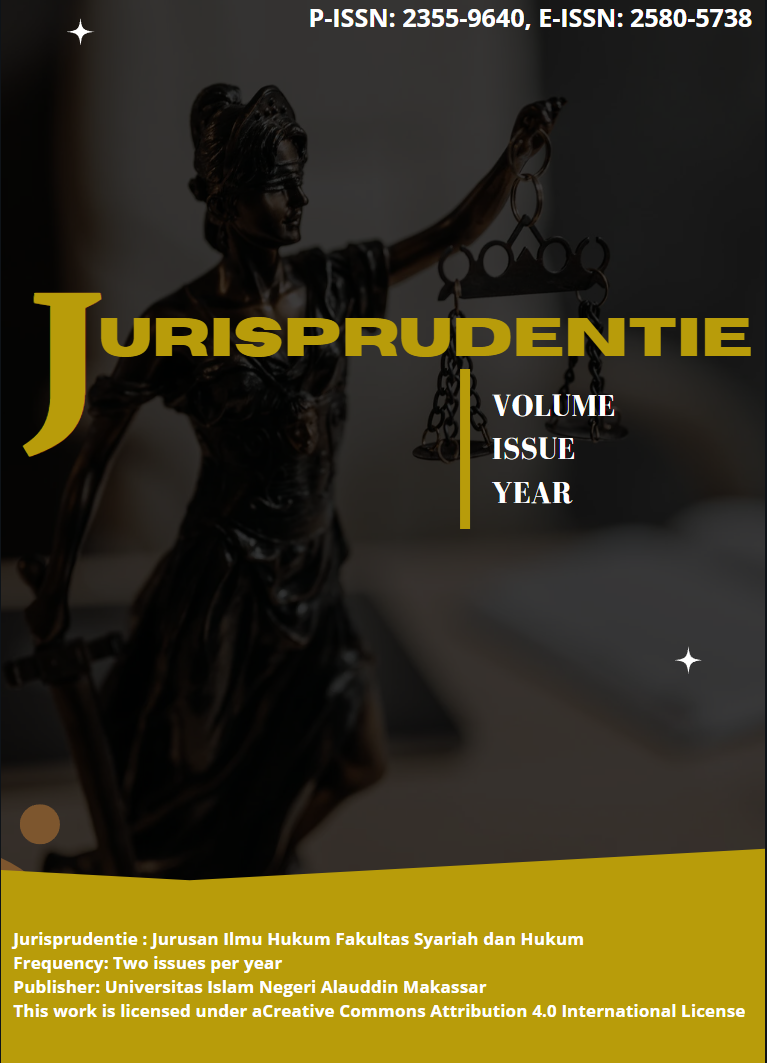Law Enforcement The Crime Of Corruption Abuse Of School Operational Assistance Funds
Abstract
With the existence of school operational assistance funds (BOS), it is hoped that public access to quality education is expected can be achieved. However, in practice the use of BOS funds is not always what is expected. This is because there are irresponsible elements who often misuse the BOS funds. Individuals who use BOS funds not in accordance with the guidelines for the use of BOS funds can be held legally responsible. The occurrence of corruption in the misuse of school operational assistance funds is caused by several factors, namely the school operational assistance management team that should have been formed by the school principal has never been formed, so that the management of school operational assistance funds is not transparent and accountable. Another factor is the weakness of the control system in the management of the School Operational Assistance Fund, which creates opportunities for managers to use BOS funds for personal interests. Perpetrators of criminal acts of corruption misuse of school operational assistance funds have been processed by law enforcement officials. The process starts from the stages of investigation, prosecution and trial and has obtained a final and binding decision. Even the perpetrator who was convicted and has served the sentence imposed on him. In the process, law enforcement officers have carried out the law enforcement process and have provided legal certainty for the actions of the perpetrators. However, the results of the process are still far from the principles of justice and benefits for the communityReferences
Journal :
Ishak, Nurfaika, Rahmad Ramadhan Hasibuan, and Tri Suhendra Arbani. "Bureaucratic and Political Collaboration Towards a Good Governance System." Bestuur, Volume 8, Nomor 1, (2020)
Arbani, Tri Suhendra. "Penggunaan dan Batas Diskresi Dalam Pengelolaan Keuangan Daerah Di Indonesia." Widya Pranata Hukum: Jurnal Kajian Dan Penelitian Hukum 1.2 (2019)
Safriani, Andi. "Hakikat Hukum dalam Perspektif Perbandingan Hukum." Jurnal Jurisprudentie 5.2 (2018).
Jayadi, Ahkam. "Peran Nilai-Nilai Religiositas dalam Pembangunan dan Penegekan Hukum Negara." Jurnal Jurisprudentie 6.1 (2019).
Desi Handayani, "Konflik Desentralisasi Di Bidang Pendidikan Terhadap Penyalahgunaan Dana Biaya Operasional Sekolah Biaya Operasional Sekolah (Bos) Di Indonesia." Al-Idarah: Jurnal Kependidikan Islam, Volume 7, Nomor 1 (2017).
Book :
Adami Chazawi, 2018, Hukum Pidana Korupsi di Indonesia, Rajawali Pers, Depok.
Andi Hamzah, 1998,Barang Bukti Dalam Proses Pidana, Sinar Grafika, Jakarta.
Bambang Poernomo, 1978, Seminar Hukum, Sumbangan Pendidikan Hukum dalam Peningkatan Pelaksanaan Tuga Penegakan Hukum. Seksi Hukum Pidana Kriminologi FH UGM, Jogjakarta.
M. Yahya Harahap, 2015, Pembahasan Permasalahan dan Penerapa KUHAP, Sinar Grafika, Jakarta.
Nanik Suparni, 1992, Pelestarian, Pengelolaan dan Penegakan Hukum Lingkungan, Sinar Grafika, Jakarta.
Peter Mahmud Marzuki, 2010, Penelitian Hukum, Jakarta: Kencana Prenada Media Group.
Rusli Effendy, Achmad Ali dan Poppy Andi Lolo, Teori Hukum. Hasanuddin University Press, Ujung Pandang, 1991, hlm.79.
Soerjono Soekanto. 2007, Faktor-Faktor Yang Mempengaruhi Penegakan Hukum, Raja Grafindo Persada, Jakarta.
Sudarto, 1986, Kapita Selekta Hukum Pidana, Alumni, Bandung.
Undang-Undang Republik Indonesia Nomor 20 Tahun 2001 Tentang Perubahan Atas Undang-Undang Nomor 31 Tahun 1999 Tentang Pemberantasan Tindak Pidana Korupsi
Once an article was published in the journal, the author(s) are:
- to retain copyright and grant to the journal right licensed under Creative Commons License Attribution that allows others to share the work with an acknowledgement of the work's authorship.
- permitted to publish their work online in third parties as it can lead wider dissemination of the work, with an acknowledgement of its initial publication in this journal
- continue to be the copyright owner and allow the journal to publish the article with the CC BY license
- receiving a DOI (Digital Object Identifier) of the work.


